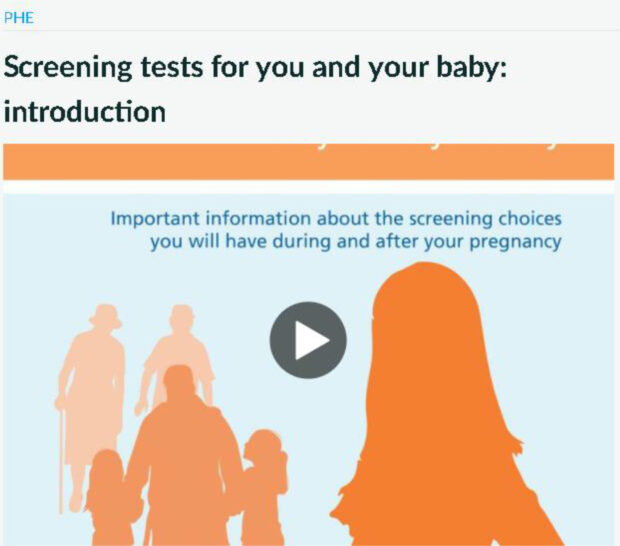Nationally and locally we aim to make sure screening is equitable and accessible to all eligible populations, which is why we’ve published 7 new audio versions of national patient information screening leaflets.
These will help meet the needs of blind and partially sighted people. Screening services have a duty, set out in the Accessible Information Standard, to do 5 things to make screening equitable for people who have a disability or sensory loss.
- Ask people if they have any information or communication needs, and find out how to meet their needs.
- Record those needs clearly and in a set way.
- Highlight or flag the person’s file or notes so it is clear they have information or communication needs and how to meet those needs.
- Share information about people’s information and communication needs with other providers of NHS and adult social care, when they have consent or permission to do so.
- Take steps to ensure people receive information which they can access and understand, and receive communication support if they need it.
Many of these responsibilities can only be met at a local level. Nationally, our role is to make sure consistent, high quality patient information is available in appropriate alternative formats to local screening providers.
We’ve a long way to go to fulfil this role. But we have now developed MP3 audio versions of each of our main national screening public information leaflets.

These audio versions are available on GOV.UK. They are:
- Screening tests for you and your baby (divided into 9 sections)
- AAA screening invitation leaflet
- Bowel cancer screening: the facts
- Bowel cancer screening: the colonoscopy investigation
- NHS breast screening: helping you decide
- NHS cervical screening: helping you decide
- Your guide to diabetic eye screening
Local screening providers should download the appropriate audio files as and when requested, or direct individuals to the relevant links.
Nationally, we’ll only provide hard copy Braille versions of leaflets in response to individual requests. This makes sure our response is proportionate and cost effective. Local providers should send any such Braille requests to us via the screening helpdesk. Please first check that the individual actually wants it in Braille and wouldn’t prefer information in a different format.
More information on the Accessible Information Standard is available from the NHS England website in a range of formats, along with a range of resources to support effective implementation of the standard, including links to e-learning modules.
PHE Screening blogs
PHE Screening BLOGs provide up to date news from all NHS screening programmes – replacing our previously published newsletters.
You can register to receive updates direct to your inbox, so there’s no need to keep checking for new blogs.